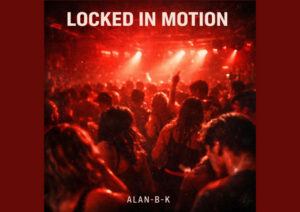The Phoenix Rises: Sara Diana Transforms Heartbreak Into Empowerment on “Body Ache”

At nineteen, most artists are still finding their voice. Sara Diana has not only discovered hers but weaponized it with the precision of a seasoned veteran. Her latest single, “Body Ache”, is a masterclass in emotional alchemy—transforming the raw materials of betrayal and heartbreak into something luminous and empowering. This isn’t just another breakup ballad; it’s a declaration of war against complacency and a manifesto for reclaiming one’s power.
Co-produced by Sean P Jones, J.P. Warner, and Tracksion_Producer, “Body Ache” unfolds like a cinematic experience, each element meticulously crafted to serve the narrative arc. The production embraces a dark, pulsating aesthetic that feels both intimate and expansive—brooding synths weave through the mix like whispered secrets, while the rhythm section provides an undeniable heartbeat that mirrors the song’s emotional pulse.
The track’s sonic architecture is deliberately paradoxical. Smooth yet shadowy, restrained yet building toward inevitable release, it creates a perfect vessel for Sara Diana’s vocal journey. The production never overwhelms, instead providing spacious corridors for her voice to explore every nuance of pain, realization, and ultimate triumph.
What sets “Body Ache” apart from conventional heartbreak anthems is its sophisticated exploration of the aftermath—not just the immediate sting of betrayal, but the complex process of excavating one’s authentic self from the wreckage of a toxic relationship. Sara Diana demonstrates remarkable emotional intelligence, crafting lyrics that capture the disorienting moment when rose-colored glasses finally shatter.
The song’s narrative structure follows a compelling arc of awakening. It begins in the tender territory of self-reflection, acknowledging past patterns of giving too much while receiving too little. The opening lines establish a protagonist who recognizes her own complicity in accepting less than she deserved, setting up the transformation to come. This isn’t blame—it’s accountability, and it’s the first step toward empowerment.
The imagery throughout is visceral and immediate. The metaphor of discarded rose-tinted glasses becomes particularly potent, representing not just disillusionment but active choice—the deliberate decision to see clearly rather than remain comfortable in delusion. The recurring motif of “high heels hitting the ground” transforms from a symbol of intimidation to one of determination, the sound becoming a war drum announcing her approach.
Sara Diana’s vocal performance is nothing short of revelatory. Her delivery balances raw honesty with controlled power, never tipping into melodrama or self-pity. Instead, she inhabits each emotion fully—the quiver of vulnerability in the verses gives way to the soaring defiance of the chorus, creating a dynamic range that keeps listeners emotionally invested throughout the journey.
The song’s most powerful moments emerge in its contradictions. She admits to being “outta control” while simultaneously demonstrating complete command of her narrative. She declares her heart is “on the floor” but follows immediately with “I like it”—a stunning subversion that transforms victimhood into choice. This isn’t masochism; it’s the recognition that sometimes we must fully feel our pain to transcend it.
The song’s bridge section represents its most dramatic shift, both musically and thematically. The repeated warning to “lock the door” and “save yourself” signals a complete transformation from wounded party to approaching storm. The production mirrors this shift, building intensity while Sara Diana’s vocals take on an almost predatory quality. It’s here that the song reveals its true nature—not as a lament, but as a promise.
This section demonstrates Sara Diana’s sophisticated understanding of power dynamics. Rather than seeking reconciliation or explanation, she’s moved beyond the relationship entirely, focused instead on reclaiming what was taken. The phrase “raising hell” becomes less about revenge and more about resurrection—the violent birth of a stronger self.
“Body Ache” positions Sara Diana as a formidable new presence in the indie pop landscape. Her willingness to explore uncomfortable emotional territories while maintaining melodic accessibility demonstrates an artistic maturity that belies her age. This isn’t music for passive consumption; it’s an invitation to examine our own patterns of settling for less than we deserve.
The track’s cinematic qualities—those images of nighttime drives and dim-lit reflections—create a universality that allows listeners to project their own experiences onto Sara Diana’s narrative canvas. Yet the specificity of her emotional journey prevents the song from feeling generic or calculated. It’s deeply personal music that manages to feel collectively cathartic.
“Body Ache” succeeds because it refuses to offer easy comfort or simple solutions. Instead, Sara Diana has created a complex emotional landscape where pain coexists with power, where vulnerability becomes strength, and where endings transform into beginnings. The song lingers not because it’s catchy—though it certainly is—but because it captures something true about the human experience of growth through adversity.
As Sara Diana continues to develop as an artist, “Body Ache” stands as both achievement and promise. It’s the sound of an artist fully committed to emotional honesty, unafraid to explore the darker territories of the heart while never losing sight of the light on the other side. In a musical landscape often content with surface-level emotion, Sara Diana dares to dig deeper, and the results are nothing short of remarkable.
This is music that aches in all the right ways—painful enough to feel real, beautiful enough to heal, and powerful enough to inspire transformation. Sara Diana has arrived, and she’s taking no prisoners.
OFFICIAL LINKS: SPOTIFY – INSTAGRAM







